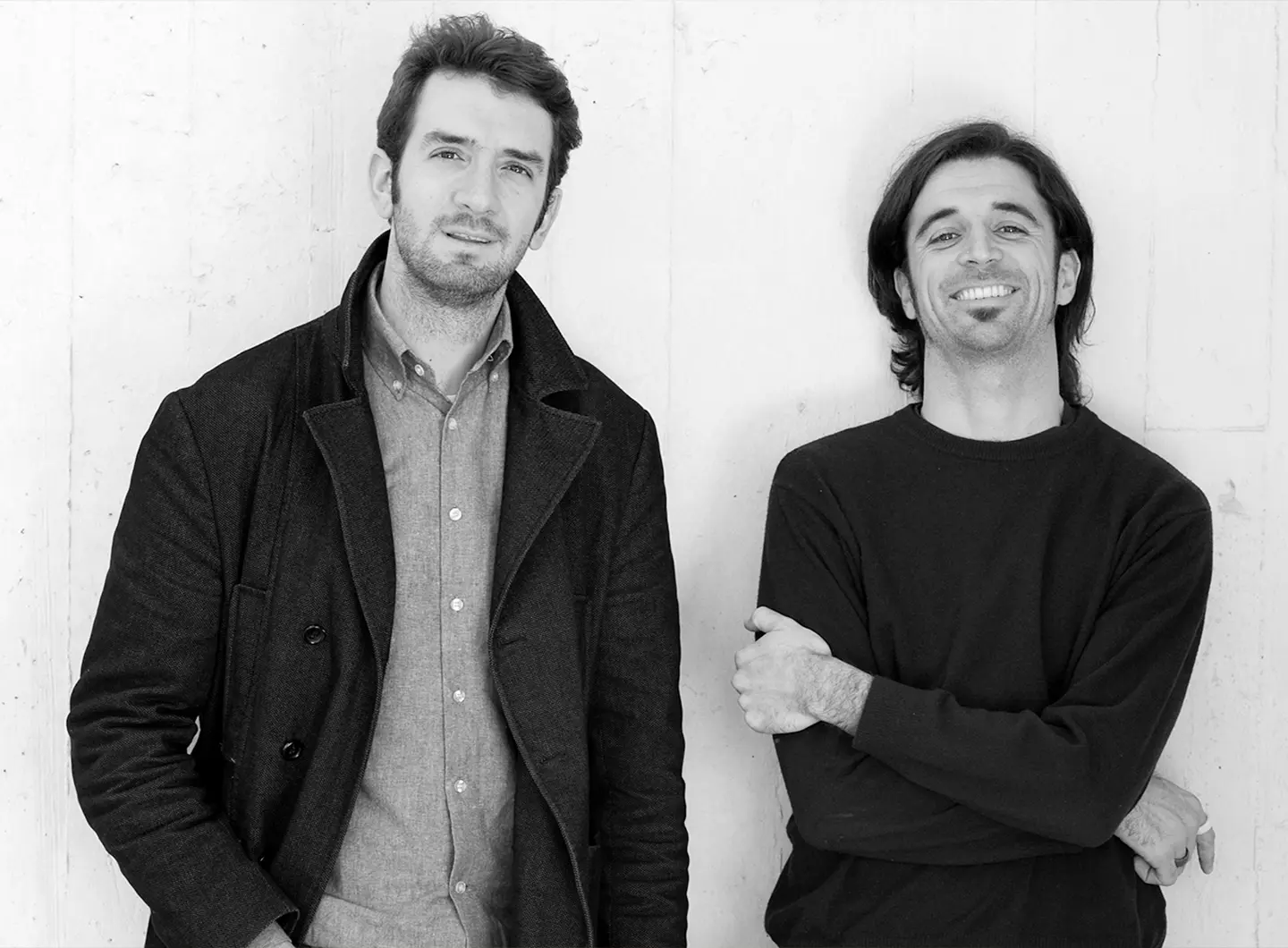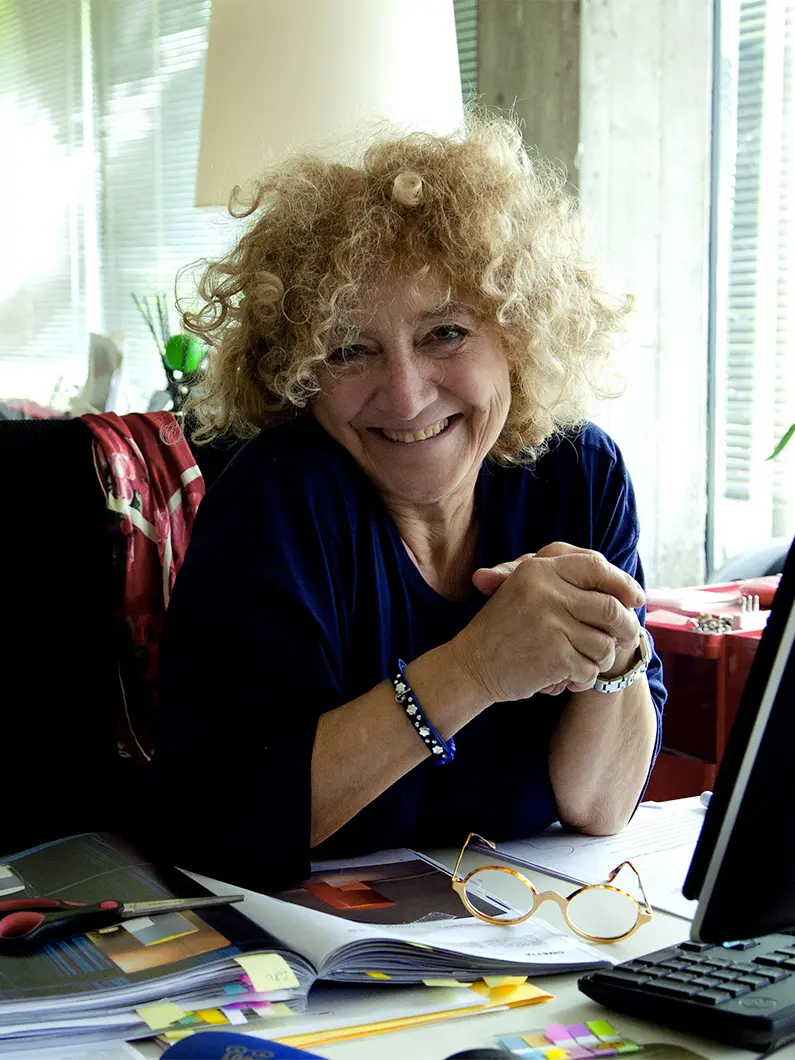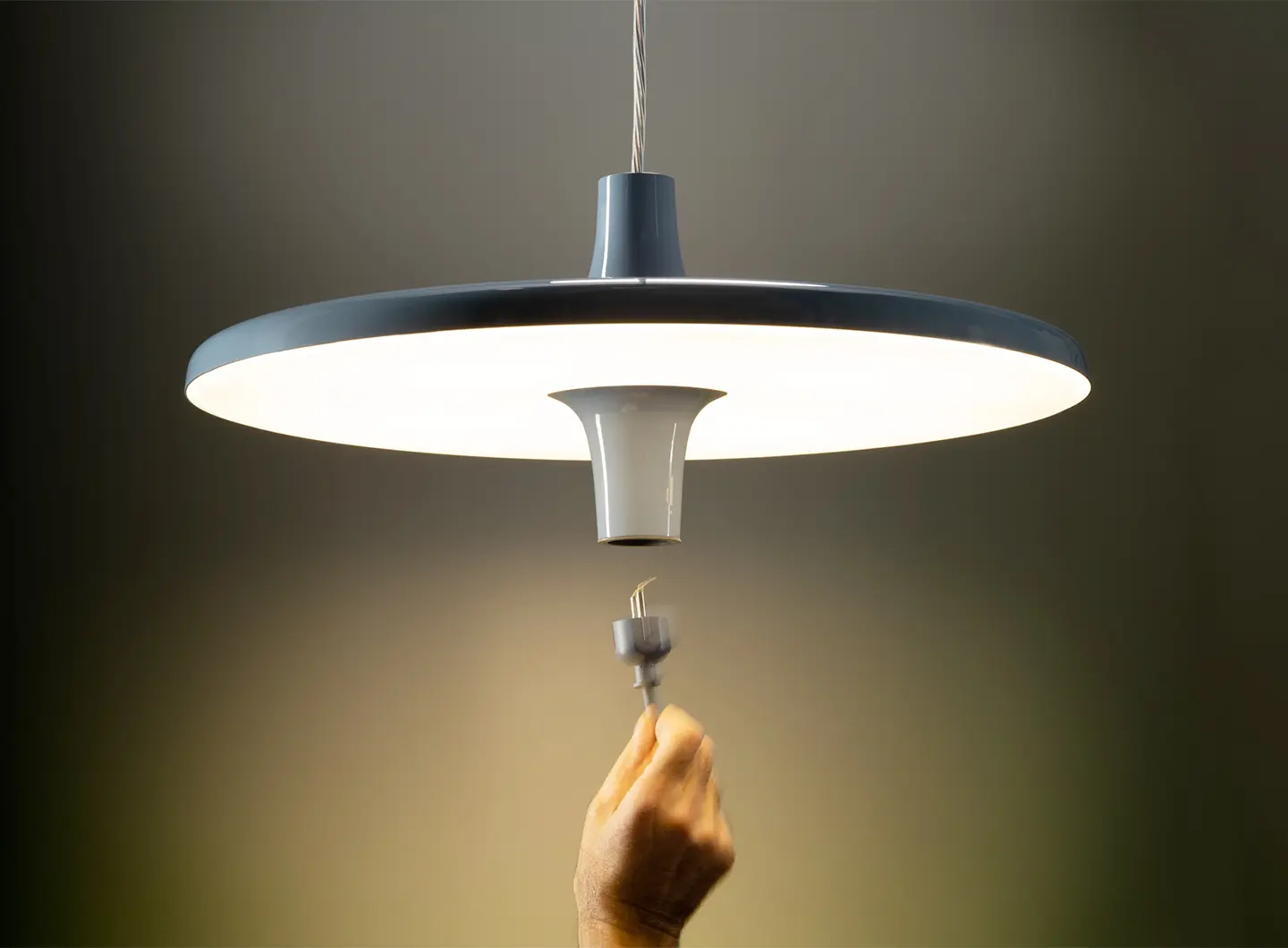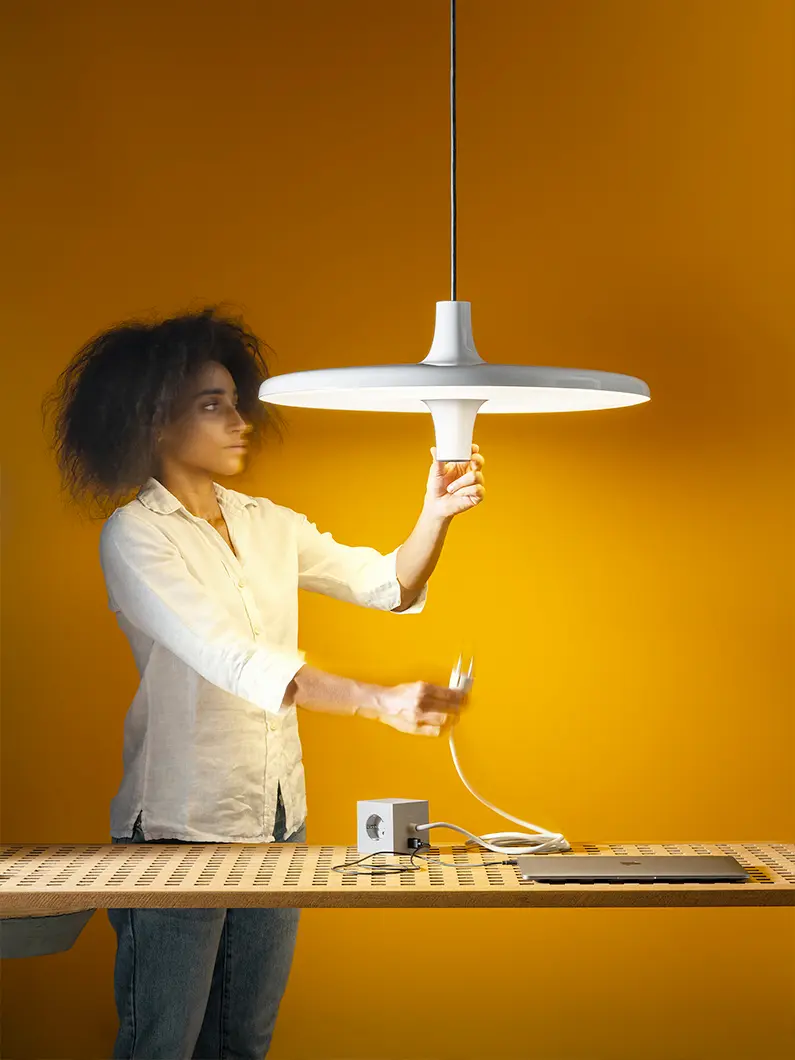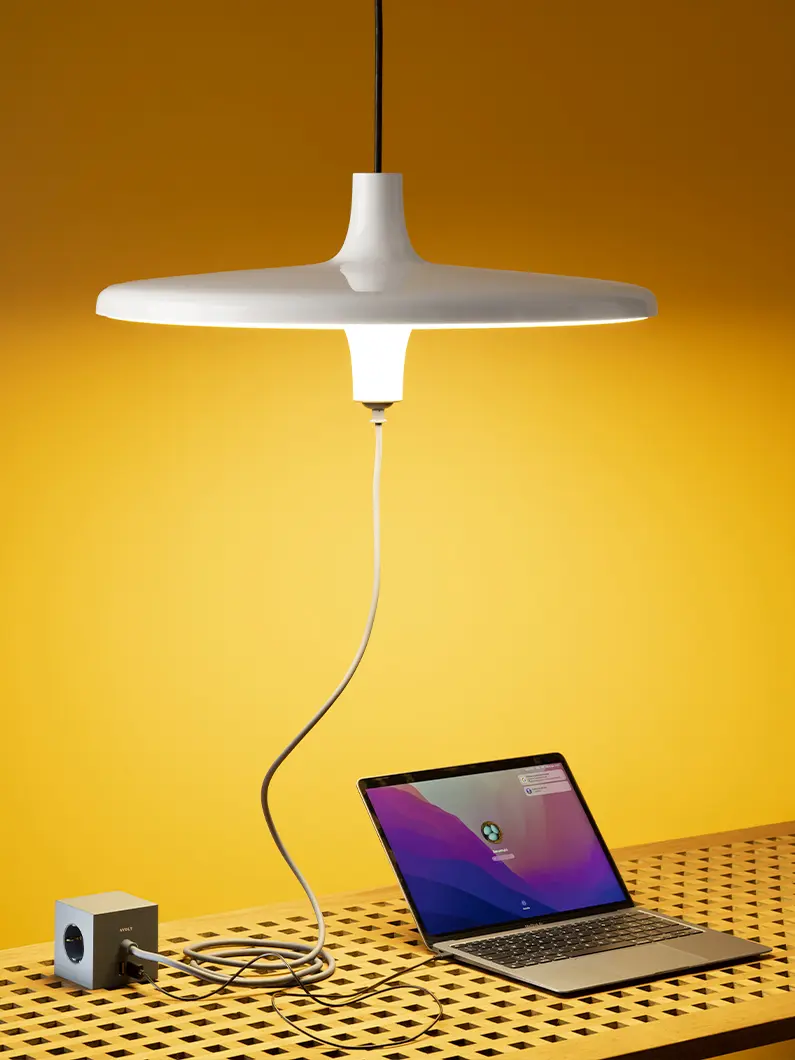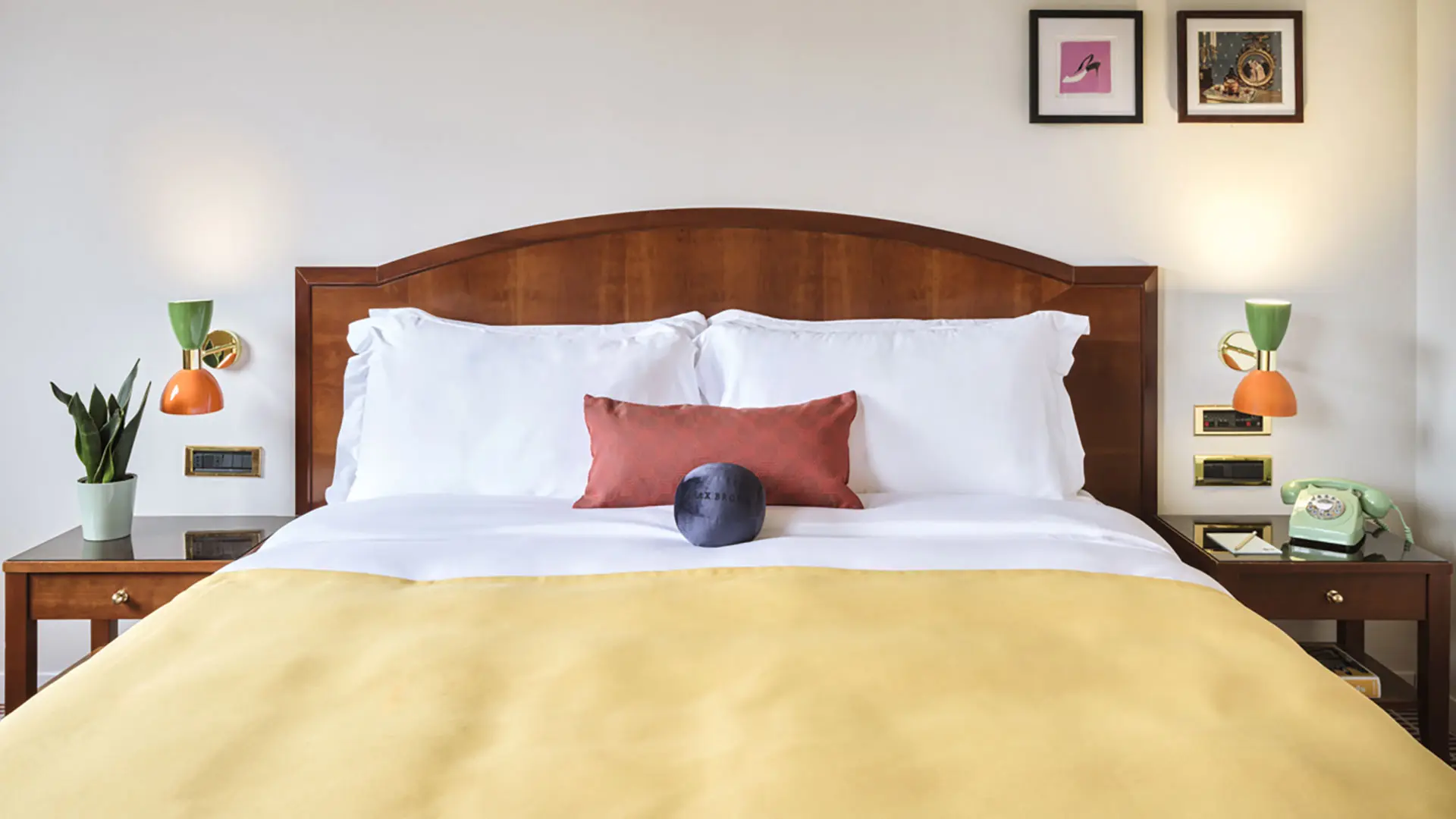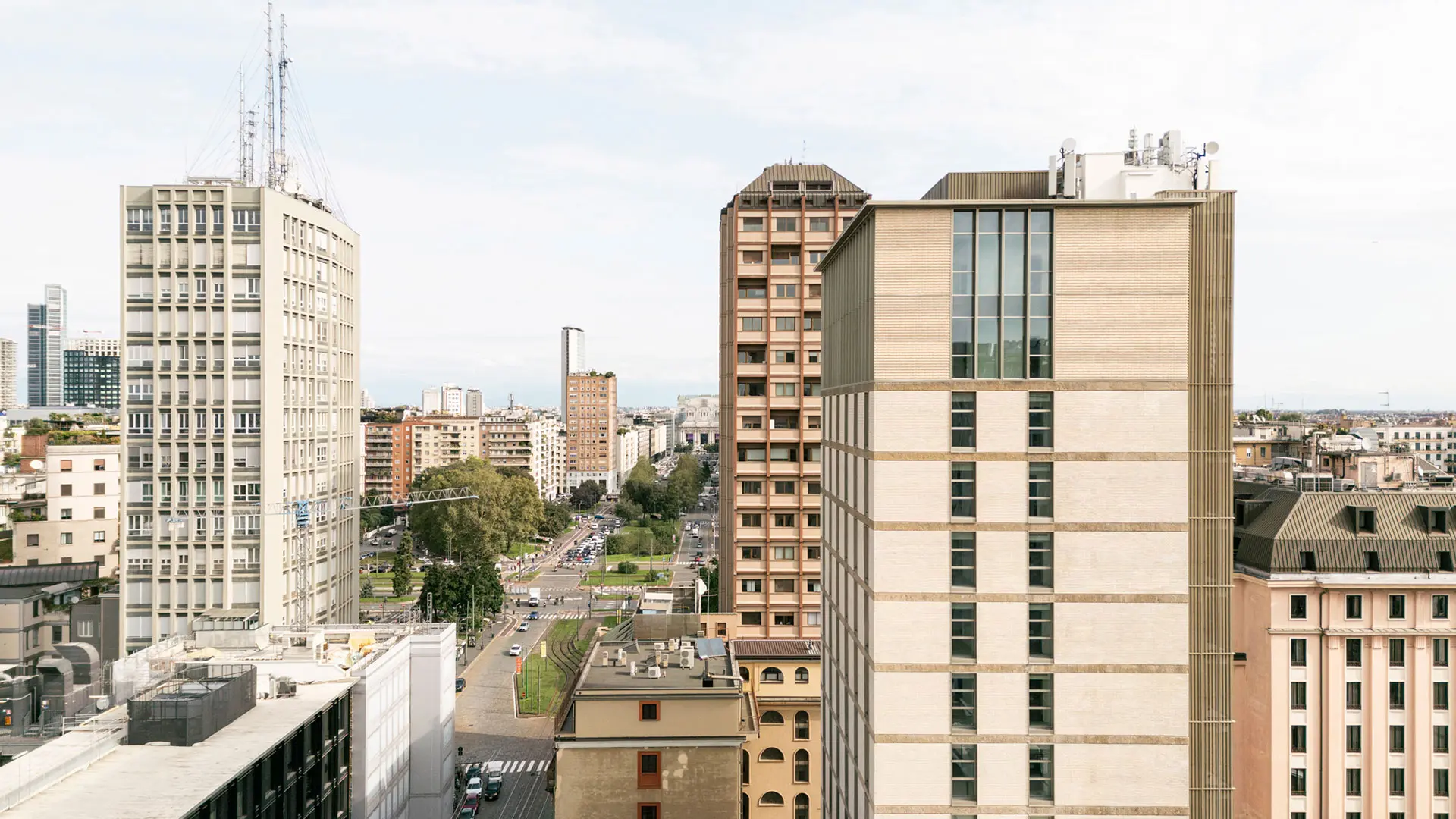In partnership with MiCodmc, a selection of establishments ripe for discovery during the 63rd edition of the Salone del Mobile.Milano, from 8th to 13th April
Studio Natural and Martinelli Luce: lighting scenarios for a variety of demands
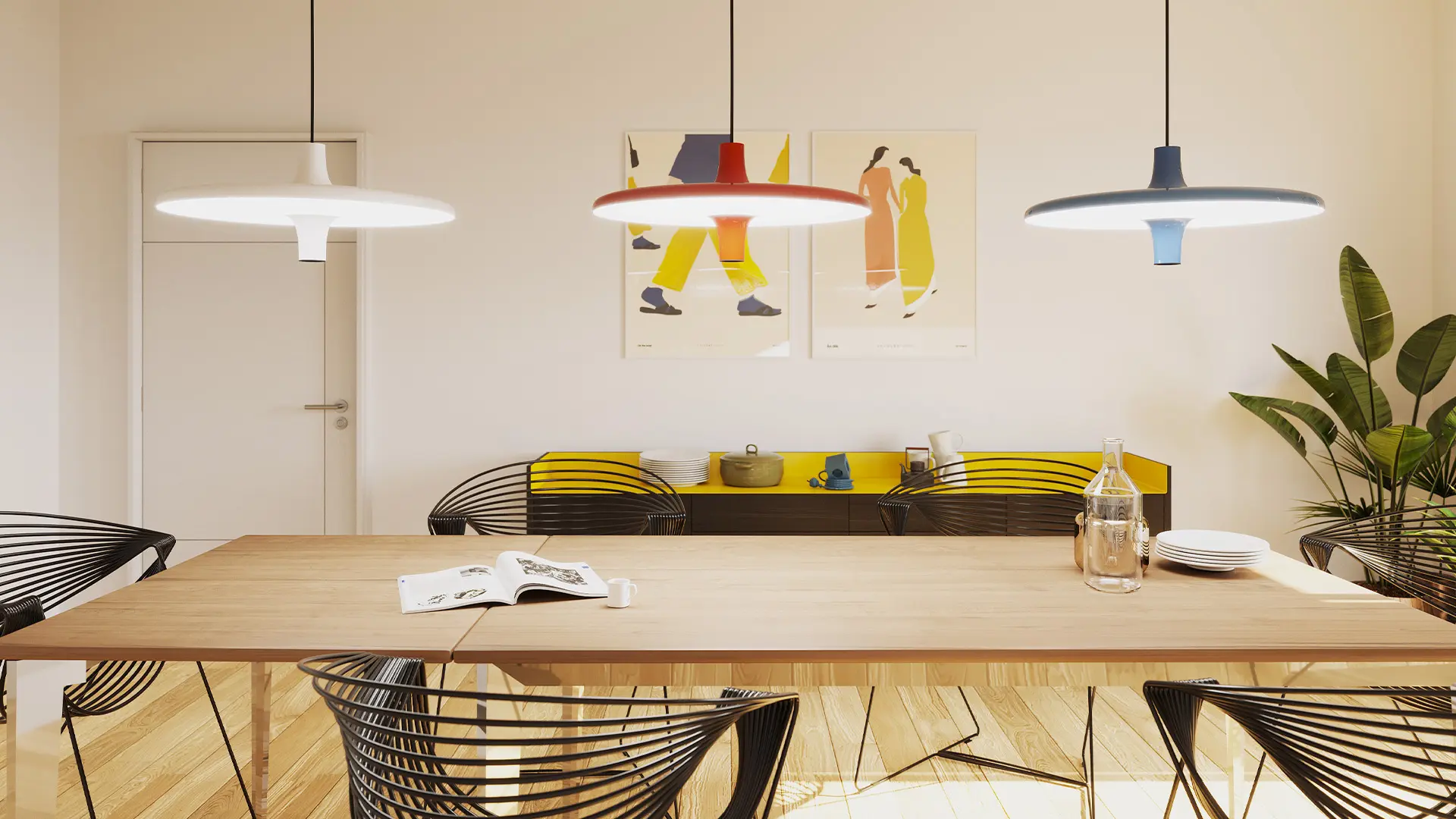
Martinelli Luce, Avro, design Studio Natural
An innovative, playful lamp. With an in-built socket and WiFi dimmer capability, it turns a worktop into a multifunctional area. For new styles of life and work
Scouting continues among the new collaborations spotted at the 2023 edition of the Salone del Mobile.Milano 2023.
A lamp-cum-socket named after an aeroplane, for “flying” through the light. That basically sums up the powerful, smart Avro lamp by Studio Natural (Alessandro Paoletti and Marco De Santi), slotting another one of its products into the highly rated catalogue of Martinelli Luce, the long-established lighting company, feted for the purity of its forms and the technological innovation of its products, many of which have netted Compasso d’Oro awards.
Presented at Euroluce 2023, Avro is a diffuse/dimmable pendant lamp with a power socket concealed in the lower part of the shade, allowing the work/dining/game tabletop to be positioned as desired beneath it, thus obviating the need for a nearby wall socket. With a 60cm diameter and an aluminium frame that comes in orange, blue, white or black, and accessorised by a multi-socket equipped with three Schuko sockets, two USB ports and a WiFi dimmer device, Avro is a contemporary-looking lamp, suitable for illuminating a wide range of work and leisure related activities thanks to the many degrees of light obtained by playing around with the dimmer.
We asked Alessandro Paoletti and Marco De Santi of Studio Natural and Emiliana Martinelli, President of Martinelli Luce three quick questions.
Studio Natural: We believe that the ability to observe and draw innovation from different fields is part of the fundamental work of a designer. We have been smart working right from the start, basically, and the idea for a socket coming down from the ceiling and turning our houses into home offices came to us naturally. We really enjoy working on the form/function/communication relationship; we want every project to bring innovation yet still be instantly comprehensible and recognisable.
S N: When we work, we try to create new objects relying greatly on our sensitivity and on our passions. We spend around half our time doing research. This allows us to generate concepts and designs to present to the partners we regard as most suitable. More importantly, it allows us to explore all sorts of different design fields, which makes us even more enthusiastic about our work.
S N: To be honest, we feel very lucky. Almost all our collaborations are long term, at least three or four years. This allows us to generate a deep empathy with our clients because we firmly believe that a good project is always the result of teamwork between the company and the designer. If we had to express a wish, it would be to design a restaurant in South Korea, a country in which the levels of sensitivity and innovation are extremely high.
Emiliana Martinelli: Yes, I grew up surrounded by lights, as you so rightly say. I live constantly surrounded by lights, both as a designer and as a businesswoman. I look at and sift through different projects from designers old and new, possibly encountered at SaloneSatellite in Milan or through other channels and direct contacts at work. Studio Natural is a design studio that I got to know a few years ago and with which we created some unusual lamps that now feature in our catalogue. Avro, for instance, is one of the latest, a lamp that piqued my interest immediately. I was particularly intrigued by the freedom the lamp confers, in that it can transform any sort of table, in the office or at home, into a functional worktop on which one can work on a computer or other IT tools, or connect small electrical appliances (toasters, blenders, irons etc. …) at the same time. The idea of having a socket not at floor level but suspended, into which a plug can be inserted, thus doing away with the jumble of cables that tends to surround us, gave me the idea for the realisation and the engineering. Another thing we have to consider these days is that homes are getting smaller, which makes the optimal and functional use of space even more important, and so more research needs to be done.
EM: I’m really delighted to have earned this recognition. It constitutes a further incentive to stick to our corporate philosophy, which helped us carve out our own identity and stand out in the vast sea of lighting device production. Taking a more general view, I imagine that in future domotics will become increasingly important, along with the study of integrated lighting at the design stage, especially for work and commercial spaces. We will see this trend in the domestic field, but with less impact because we will all want to personalise our homes and tailor them most closely to our needs. That means there will be room for everyone.
EM: Creativity derives primarily from responding to the demands of the client or designer. In the case of the former, the specifics of the project come into play and the designer has to start from this input and with some research, before trying to create a product that satisfies the client whilst also expressing their design philosophy, their creative spirit, which is partly conditioned by creative demands. In the latter case, inspiration can be triggered by an infinite number of things, everything can be a stimulus for creating any and every sort of object. Designers have sharp powers of observation, they’re critical and curious, and knowing how to look at things a certain way makes them want to set to immediately, in a flash, at any time and in any place, keen to bring their passion to bear on new things. Where Martinelli Luce is concerned, many different lamps - such as Serpente, Cobra, Mamba, Foglia, Nuvole Vagabonde, Colibrì, Rondini and many more besides - have been inspired by observing a leaf, a snake, clouds scudding across the sky, birds sitting on power lines, the tangled branches of trees etc.
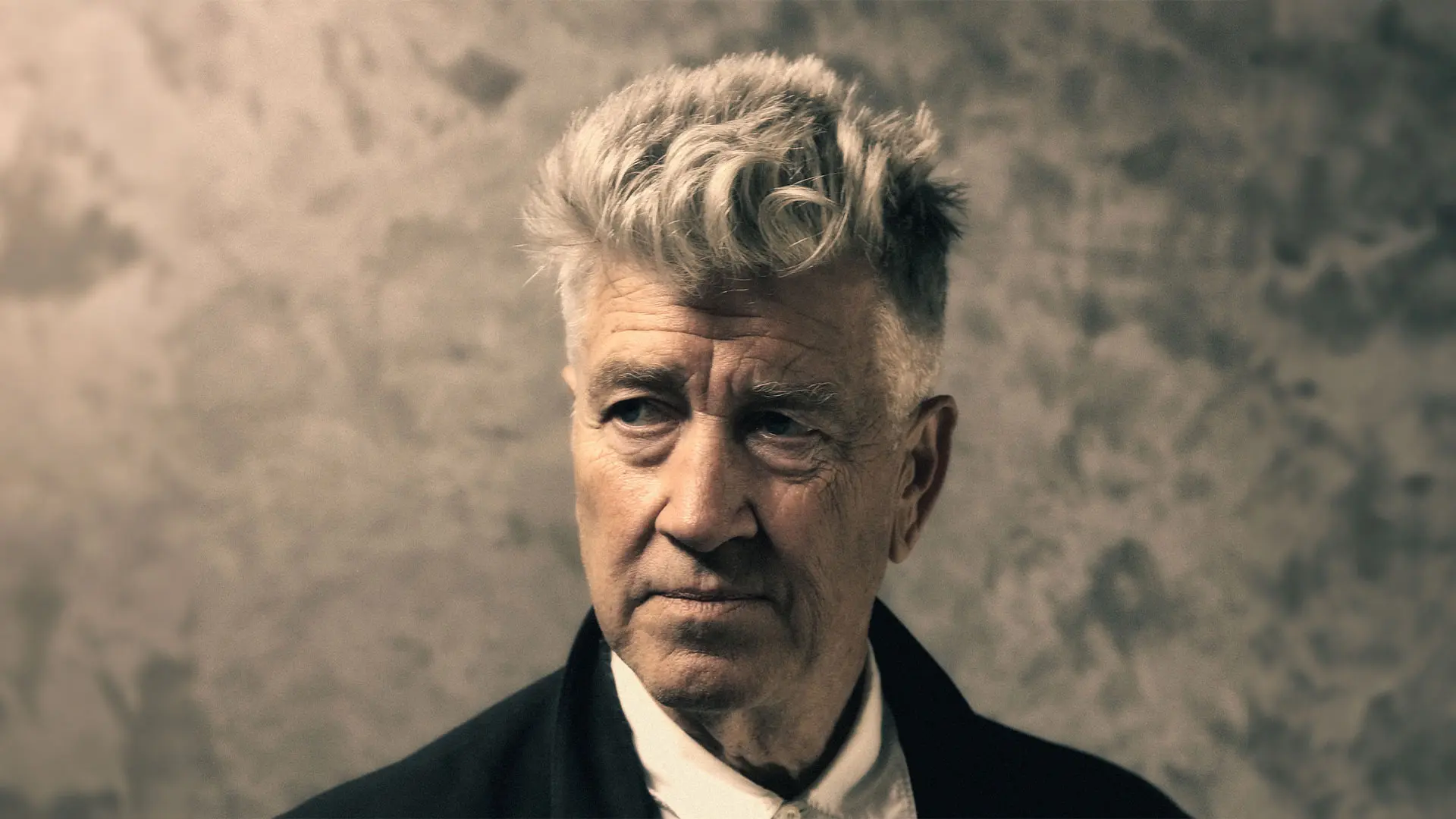
In memoriam: David Lynch
The American director has left us at the age of 78. The Salone del Mobile.Milano had the honor of working with him during its 62nd edition, hosting his immersive installation titled “A Thinking Room”. An extraordinary journey into the depths of the mind and feelings. His vision will continue to be a source of inspiration.



 Stories
Stories
